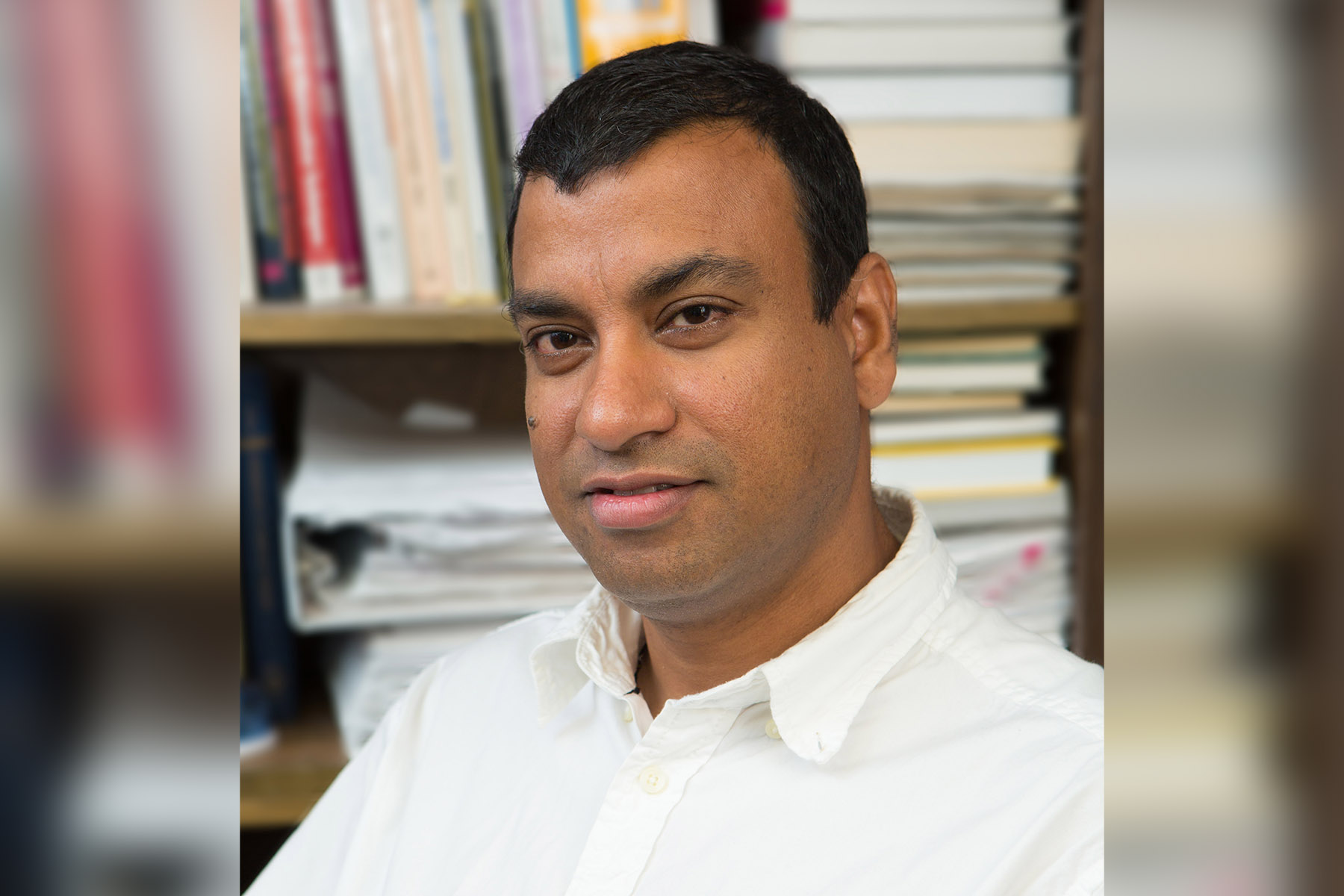FSU statistician named fellow of the Institute of Mathematical Statistics

A Florida State University statistician has been named a fellow of the Institute of Mathematical Statistics (IMS), one of the most esteemed designations in the field.
Anuj Srivastava, a distinguished research professor in the Department of Statistics, has been elected as a 2022 IMS Fellow, joining a class of 39 other researchers from around the world. Srivastava was recognized for his fundamental contributions to geometrical statistics including shape analysis, functional data analysis and statistics on manifolds and for his leadership and service to the profession.
“I am happy to be a part of this select group of statisticians,” Srivastava said. “My research and expertise are interdisciplinary. I publish broadly in computer science, electrical engineering, applied statistics and image analysis. While I have never viewed myself as a mathematical statistician, getting an official recognition for that aspect of my work feels good.”
Each IMS Fellow is assessed by a peer committee and must have demonstrated distinction in research or leadership that has profoundly influenced the field. Statistics chair Xufeng Niu said Srivastava’s impact is significant, calling him a renowned scholar in the field of computer vision, image analysis and statistical modeling.
“He has long been a leading innovator in the world in statistical shape analysis, with broad applications in biology, bioinformatics, computational anatomy and computer vision,” Niu said. “We are very proud that Anuj has been named an IMS Fellow this year.”
In 1990, Srivastava earned a bachelor’s of technology in electronics engineering from the Indian Institute of Technology at Banaras Hindu University in Varanasi, India. He went on to receive master’s and doctoral degrees in electrical engineering from Washington University in St. Louis.
Srivastava has been with the FSU Department of Statistics since 1997 and was recognized as a distinguished research professor in 2014. His research focuses on quantifying the shapes of objects in images and videos.
“Jokingly, I call my group ‘Shapes R Us,’” Srivastava said. “We work on analyzing and quantifying shapes of all kinds of physical and biological objects. For example, we study parts of the human brain to help diagnose cognitive disorders, such as schizophrenia and Alzheimer’s, in patients. We have investigated shapes at different scales, from microscopic — such as chromosomes, mitochondria and cancer cells — to human scale, including human faces, anatomical structures and blood vessel networks as parts of different scientific studies.”
Srivastava said his group helps visualize average shapes — for example, the average 3D human face in a population — or distinguish two populations in terms of their shapes, for instance, healthy and diseased subjects, using their MRI brain scans.
“I am very thankful to my Ph.D. students, past and current, and numerous collaborators for helping broaden my knowledge and research perspectives,” Srivastava said. “Transdisciplinary research is a team effort, and any recognition is a team prize. I am happy that our team has been recognized in multiple ways.”
In addition to his IMS fellowship, Srivastava is also a fellow of several other associations, including the American Association for the Advancement of Science, the American Statistical Association, the Institute of Electrical and Electronics Engineers and the International Association for Pattern Recognition.
Created in 1935, the Institute of Mathematical Statistics is a member organization that fosters the development and dissemination of the theory and applications of statistics and probability. The IMS has 4,200 active global members. About 10 percent of the current IMS membership has earned the status of fellowship.

